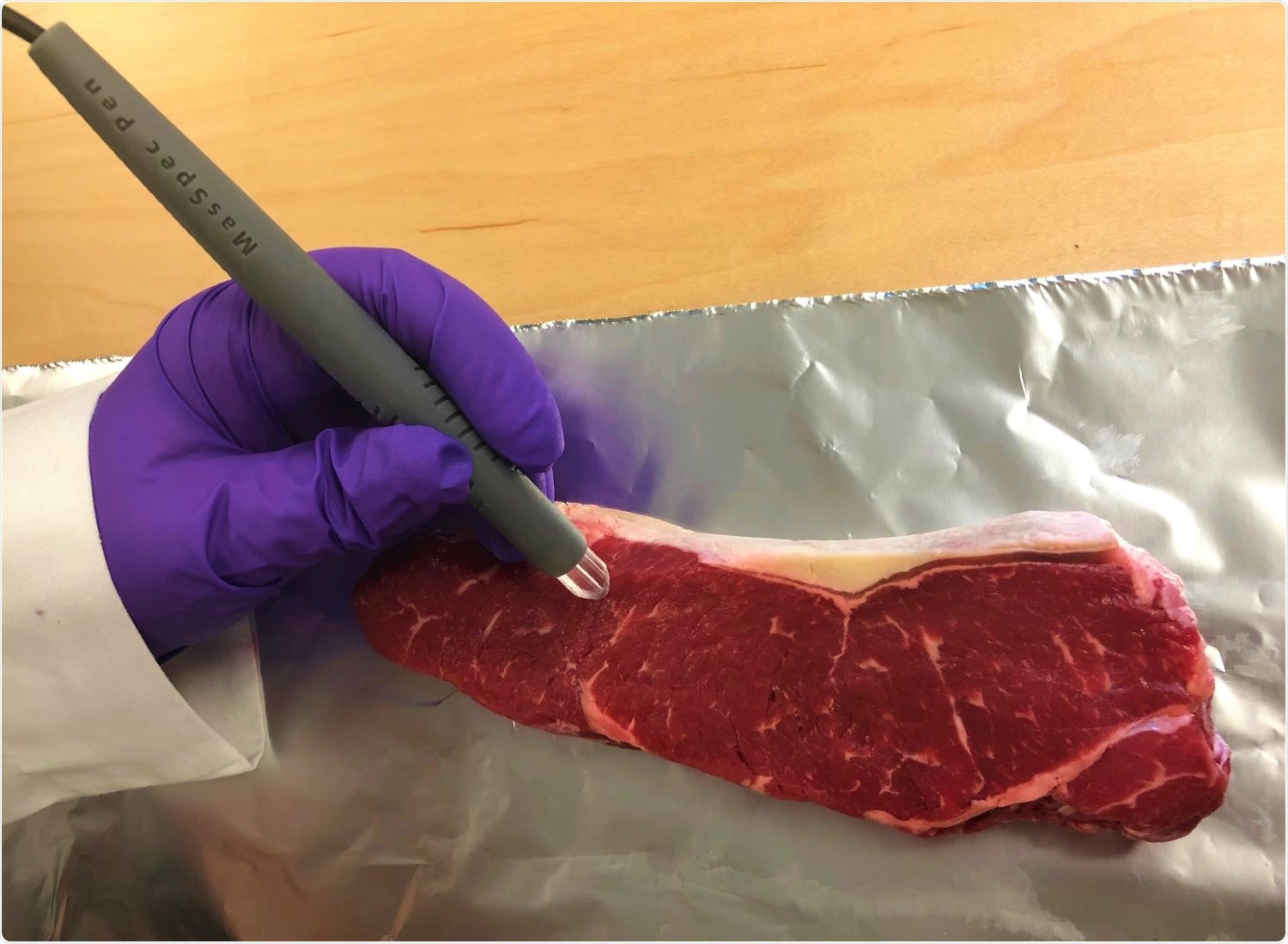Meat and fish fraud are worldwide issues that cost consumers billions of dollars annually. In addition to this, mislabeling of products can lead to problems for people suffering from allergies or with cultural or religious restrictions.

The MasSpec Pen can authenticate the type and purity of meat samples in as little as 15 seconds. Image Credit: Adapted from Journal of Agricultural and Food Chemistry 2021, DOI: 10.1021/acs.jafc.0c07830.
Although existing techniques for detecting this fraud are accurate, they are slower compared to what inspectors would prefer. A team of researchers has now improved their handheld MasSpec Pen to detect common types of meat and fish within 15 seconds. The findings of the study have been reported in the Journal of Agricultural and Food Chemistry from the American Chemical Society.
News reports on food fraud, like the replacement of beef with horse meat and cheaper fish branded as premium fillets, have made people doubt if what is mentioned on the label is actually contained in the package.
The U.S. Department of Agriculture performs regular, random inspections of such products to tackle food adulteration. Existing molecular techniques, like the polymerase chain reaction (PCR), are highly accurate, but these analyses can require from several hours to many days, and are usually conducted at off-site laboratories.
Earlier studies have developed more direct and on-site food analysis techniques using mass spectrometry, which uses the amounts of molecular components to validate meat sources. However, these techniques also destroy samples during the process or necessitate sample preparation steps.
Livia Eberlin and her team recently developed the MasSpec Pen, which is a handheld device for gently extracting compounds from the surface of a material within seconds and analyzing them on a mass spectrometer. Therefore, the researchers intended to observe whether this device could effectively and quickly detect meat and fish fraud in-ground products and pure fillets.
Using the MasSpec Pen, the team investigated the molecular composition of grass-fed and grain-fed chicken, beef, lamb, pork, venison, and five common fish species collected from grocery stores.
When the tip of the device was pressed against a sample, a 20-µL solvent droplet was released, thus extracting adequate amounts of molecules within 3 seconds for precise analysis through mass spectrometry. The entire process required 15 seconds and avoided the need for preprocessing, while the liquid extraction did not damage the surfaces of the samples.
The researchers then created authentication models with the distinct patterns of the molecules detected, such as anserine, carnosine, taurine, succinic acid, and xanthine to differentiate pure meat types from each other, beef dependent on feeding habit, and among the five fish species. Lastly, they applied the newly developed models to analyze test sets of fish and meats.
In the case of these samples, all models exhibited an accuracy of 100% in identifying the protein source, which is as good as the existing technique of PCR and roughly 720 times quicker. According to the researchers, their intention is to scale up the technique to analyze other meat products and combine the MasSpec Pen with a portable mass spectrometer for on-site meat authentication.
Source:
Journal reference:
Gatmaitan, A. N., et al. (2021) Rapid Analysis and Authentication of Meat Using the MasSpec Pen Technology. Journal of Agricultural and Food Chemistry. doi.org/10.1021/acs.jafc.0c07830.